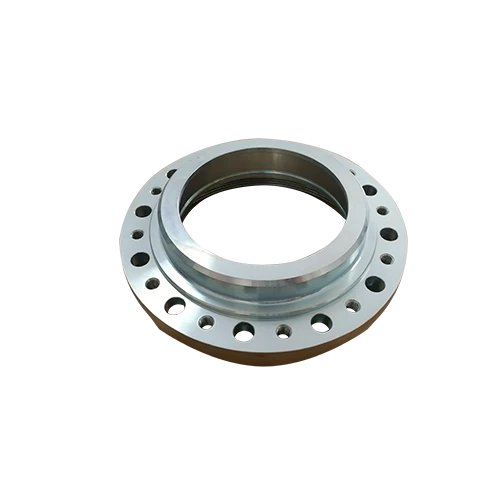Mobile:+86-311-808-126-83
Email:info@ydcastings.com
electric vehicle water pump
The Rise of Electric Vehicle Water Pumps Enhancing Efficiency and Sustainability
As the automotive industry continues to evolve, the shift towards electric vehicles (EVs) has become increasingly prominent. This transition not only reflects a desire for more sustainable transportation solutions but also emphasizes the need for innovative technologies that support the overall performance and efficiency of electric vehicles. One such critical component is the electric vehicle water pump, an often-overlooked element that plays a crucial role in maintaining optimal functioning, enhancing energy efficiency, and ensuring the longevity of EVs.
Understanding Electric Vehicle Water Pumps
In conventional internal combustion engine vehicles, water pumps are fundamentally important for cooling systems, preventing overheating, and maintaining engine performance. Similarly, electric vehicles utilize water pumps, albeit with a differing purpose aligned with their unique technologies. In EVs, water pumps are primarily responsible for regulating the thermal management of the battery pack, electric motor, and other electronic components. Proper thermal management is critical in EVs, as overheating can lead to significant performance issues, potential failures, and reduced battery life.
Types of Water Pumps Used in Electric Vehicles
Electric vehicle water pumps can be categorized mainly into two types centrifugal pumps and positive displacement pumps. Centrifugal pumps utilize rotational energy to move coolant through the system, making them efficient for high-flow applications. These are often employed to cool the battery and the electric motor due to their ability to provide a steady flow of coolant.
On the other hand, positive displacement pumps work by trapping a fixed amount of fluid and forcing it through the system. They are particularly beneficial for applications requiring precise control over the coolant flow and pressure. This attribute is essential for maximizing the efficiency of the thermal management system.
Advantages of Electric Vehicle Water Pumps
1. Enhanced Energy Efficiency Electric vehicle water pumps operate on electric power, allowing for adaptive cooling strategies that can adjust based on the vehicle's needs. By precisely controlling the flow of coolant, these pumps can minimize energy consumption and optimize battery performance, furthering the vehicle's overall efficiency.
electric vehicle water pump

2. Reduced Noise and Vibration Unlike traditional mechanical pumps that are powered by the engine, electric pumps contribute to a quieter ride by eliminating noise and vibrations associated with conventional cooling systems. This aligns perfectly with the driving experience that EV users seek — a smooth and silent operation.
3. Improved Reliability Electric vehicle water pumps are generally designed with fewer moving parts than traditional pumps, leading to lower maintenance requirements and improved reliability. This reliability is particularly critical in electric vehicles where the need for frequent maintenance can be a deterrent for potential users.
4. Flexible Integration As EV designs continue to evolve, electric water pumps offer flexibility in their integration into various thermal management systems, accommodating unique vehicle architectures. This adaptability supports innovative designs in future EV models.
The Future of Electric Vehicle Water Pumps
With advancements in technology, the future of electric vehicle water pumps is promising. Researchers and manufacturers are exploring lightweight materials and compact designs to enhance the efficiency and performance of these pumps further. Moreover, the integration of smart technologies, such as IoT connectivity, can enable real-time monitoring and adjustments to the thermal management systems, promoting greater system efficiency and vehicle performance.
As electric vehicles become increasingly mainstream, the significance of each component, including the water pump, will grow. Manufacturers will need to innovate continuously to ensure that water pumps keep pace with the growing demands of EV performance and sustainability.
Conclusion
In conclusion, electric vehicle water pumps play a vital yet often underappreciated role in the overall efficiency and functionality of electric vehicles. Their ability to provide effective thermal management while contributing to energy efficiency, reduced noise, and enhanced reliability positions them as an essential component in the transition towards a more sustainable automotive industry. As the market for electric vehicles expands, the development and optimization of water pumps will be integral in paving the way for a future that embraces both innovation and sustainability.
-
Why Should You Invest in Superior Pump Castings for Your Equipment?NewsJun.09,2025
-
Unlock Performance Potential with Stainless Impellers and Aluminum End CapsNewsJun.09,2025
-
Revolutionize Your Machinery with Superior Cast Iron and Aluminum ComponentsNewsJun.09,2025
-
Revolutionize Fluid Dynamics with Premium Pump ComponentsNewsJun.09,2025
-
Optimizing Industrial Systems with Essential Valve ComponentsNewsJun.09,2025
-
Elevate Grid Efficiency with High-Precision Power CastingsNewsJun.09,2025











